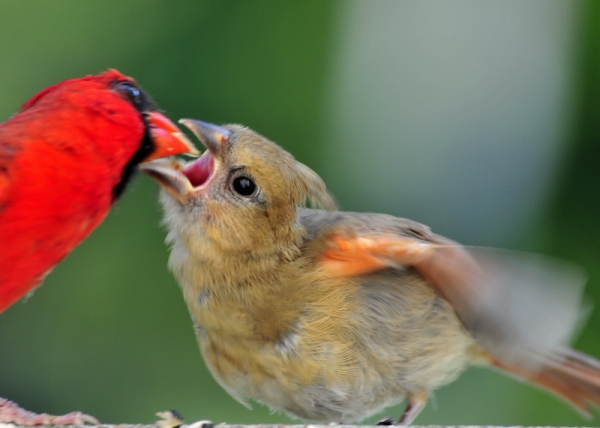
It is Against the Law to Keep Wildlife as Pets
SPRINGFIELD, IL –(ENEWSPF)—May 4, 2018
By: Rosemary Piser
The Illinois Department of Natural Resources (IDNR) is reminding all Illinois citizens to leave baby birds and wild animals alone.
During the breeding season, well-meaning people may believe they are helping by taking possession of young wildlife such as young rabbits, fawn deer, baby birds and other animals that may appear to have been orphaned or abandoned. In nearly all cases, the birds and animals are still being fed and cared for by their parents, which likely stay away from nests or dens if people are present.
According to the Illinois Wildlife Code, it is against the law to keep wild animals as pets, or to raise wild animals believed to have been abandoned. Additionally, agency responses to incidents involving wildlife can be costly to taxpayers. For example, in response to community concern about a young wild deer in McLean Co. this spring, IDNR and USDA Wildlife Services’ personnel and other costs totaled nearly $7,000 to investigate the matter, and to capture and relocate the deer to a licensed wildlife rehabilitator.
Anyone with questions about care for possibly abandoned wildlife can contact a licensed wildlife rehabilitator. To learn more about potential wildlife conflicts, and keeping people, pets and wildlife safe, visit the Living with Wildlife in Illinois website at http://web.extension.illinois.edu/wildlife/
All wild birds, except the Rock Pigeon, European Starling, and House Sparrow, are protected by federal law. This includes protection of eggs, nests, and feathers. The IDNR works with the U.S. Fish and Wildlife Service to protect and manage birds in Illinois.
Some additional reminders about wildlife in Illinois:
- Birds often leave the nest before they can fly. These birds, known as fledglings, will live on the ground for a few days while they grow flight feathers, and you may hear them making noises calling for their parents. They do this so their parents will continue to feed them, and it doesn’t mean they are in trouble. Keep children and pets away.
- Do not attempt to rescue fawns. Fawns stay very still to conceal themselves until they are old enough to keep up with their mother. The mother will not stand near the fawns for fear of alerting predators to their presence. Leave fawns alone and the mother will return once you leave the area.
- It is illegal to feed wild deer. When deer congregate, it can facilitate the spread of disease and cause other unintended consequences.
- Wild birds and animals can become habituated to people when they are provided food. Do not leave pet food outside at night, clean up under bird feeders, secure the lids on garbage cans to keep raccoons and other wildlife out, and don’t feed Canada geese in urban/suburban areas. Nuisance animals can become dangerous to people.
- Handling wild animals can result in the handler being bitten. According to the Centers for Disease Control, wild animals that bite a person must be euthanized immediately to be tested for rabies.
The IDNR urges everyone to enjoy wildlife by observing, but not interfering, and by leaving wildlife in the wild.
Source: www.illinois.gov








